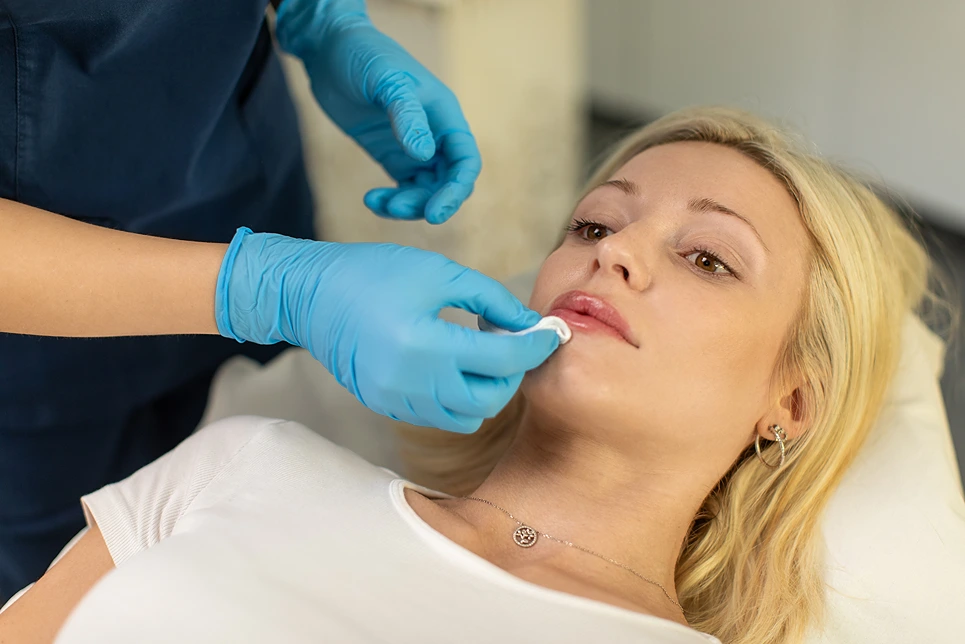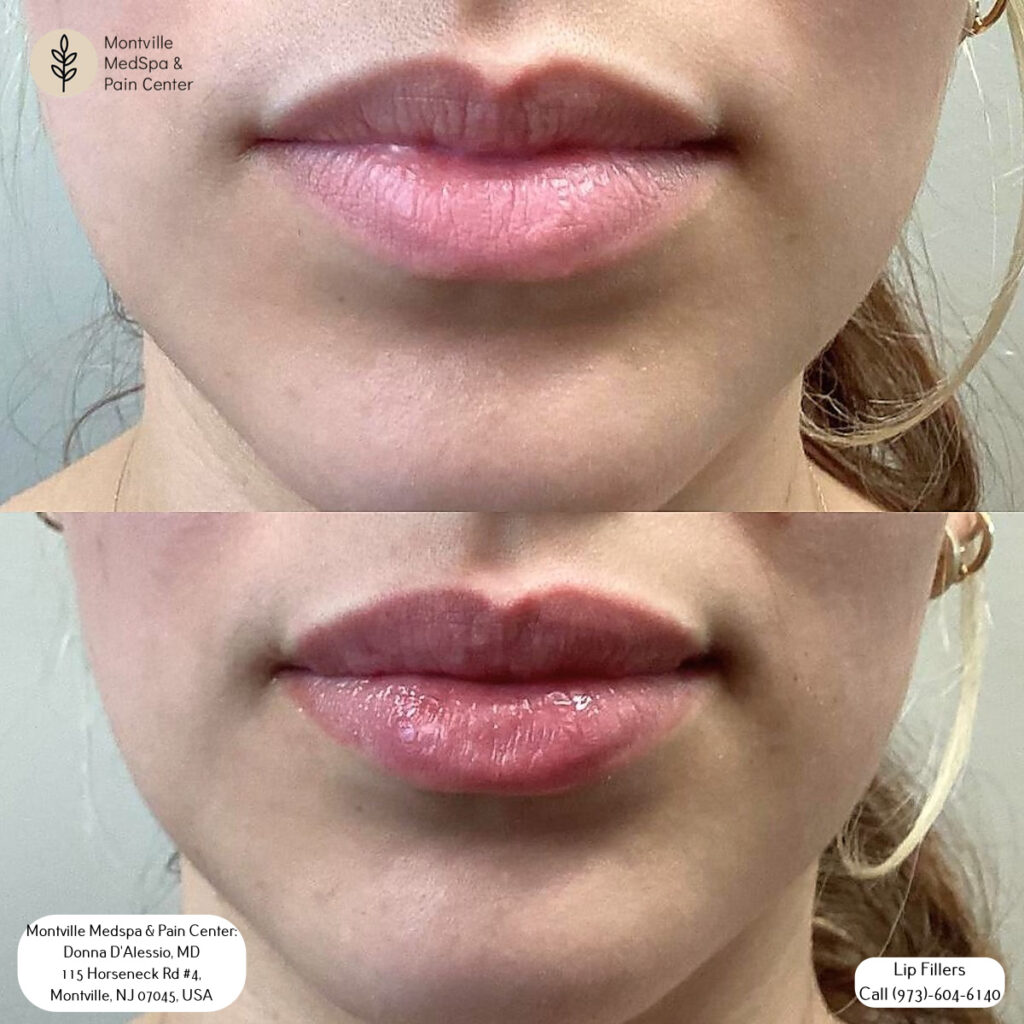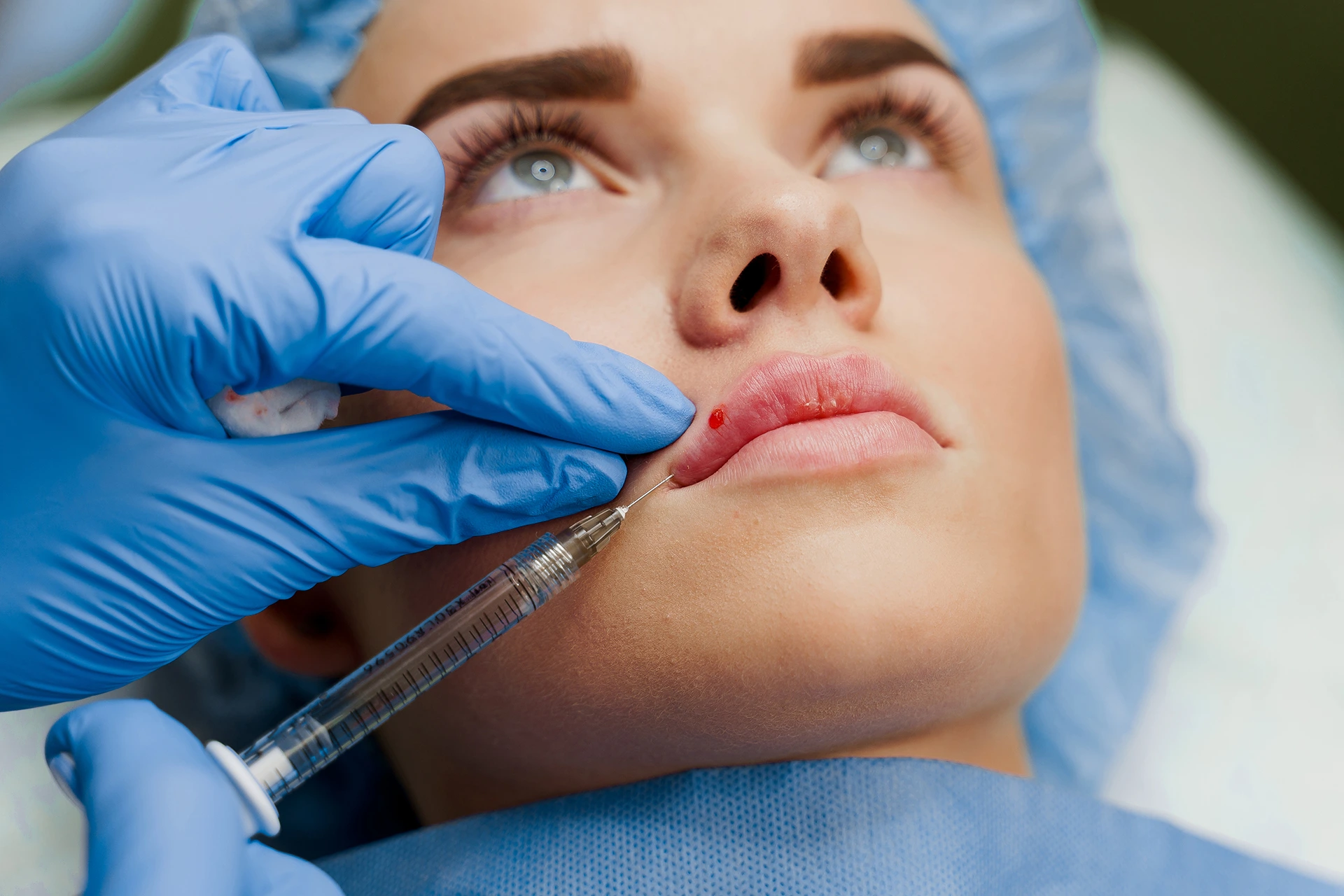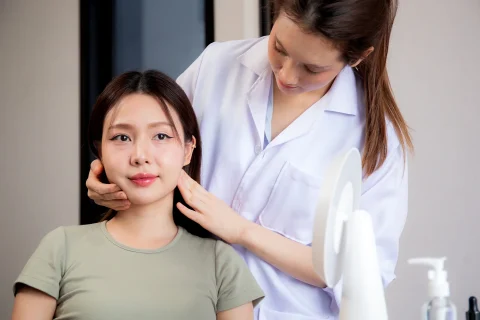While it’s not strictly forbidden, drinking alcohol after lip fillers is strongly discouraged, especially in the initial 24-48 hours, as it acts as a blood thinner, potentially exacerbating bruising and swelling, and can cause dehydration, affecting filler settling and longevity.
Lip fillers are one of the most popular minimally invasive cosmetic procedures. These dermal filler injections can give you fuller, plumper lips with subtle enhancements that still look natural. But you need to take proper care following the treatment while your lips heal to get the best results. So can you drink alcohol after lip fillers?
Why Avoid Alcohol Before and After Lip Injections?

Most practitioners recommend avoiding alcohol before and after getting lip fillers. There are a few critical reasons for this advice:
Alcohol Thins Your Blood
Alcohol acts as a blood thinner and vasodilator. It causes your blood vessels to relax and widen closer to the surface of your skin. This effect starts when you take your first sip of alcohol.
Wider blood vessels are more susceptible to trauma from the tiny needle punctures during lip filler injections. The needles pierce the lining of the blood vessels, allowing blood to seep out into the surrounding tissue. This blood leakage results in bruising and swelling.
Consuming alcohol before lip fillers makes bruising more likely and more noticeable after treatment. The same goes for drinking soon after your injections. The delicate puncture sites are still healing, and alcohol in your system can lead to continued bleeding under the skin.
Alcohol Dehydrates Your Body
Alcohol is a diuretic – it makes your body release more urine, causing you to become dehydrated. Just a few drinks can start to dry out your skin and lips.
Dehydration negatively impacts lip filler results and how well the hyaluronic acid integrates into your lips. Dry, parched lips may not heal as quickly and can even crack and peel after treatment.
Plus, dehydration causes your blood to thicken. This counteracts the blood thinning effect from alcohol itself. But it creates an environment ripe for clotting and bruising after lip injections.
Alcohol Impairs Wound Healing
Drinking alcohol suppresses your immune system’s inflammatory response. This response is a key part of your body’s natural healing abilities.
Alcohol exposure makes wounds heal slower. It also hinders your ability to recover from infections and repair damaged tissue. Impaired immunity and wound healing are not what you want after a cosmetic procedure like lip fillers.
How Long Should You Avoid Alcohol After Lip Injections?
There is no set rule for how long to avoid alcohol after getting lip fillers. Recommendations typically range from:
- 24 hours
- 48 hours
- 72 hours
Some lip filler aftercare instructions say to avoid alcohol for:
- 5 to 7 days
- Up to 2 weeks
The timeframe often depends on:
- The extent of the lip injections
- Your personal risk factors
- Medical advice from your provider
If you only get a conservative amount of lip filler, avoiding alcohol for 24 hours may suffice. But if you get a lip filler treatment with more extensive injections, like a significant augmentation, your practitioner may advise avoiding alcohol for 48 hours or more.
Patients prone to swelling, bruising, and slow healing may also be told to avoid alcohol for a more extended period after lip injections. Certain medications and supplements can also interfere with wound healing and the effects of alcohol.
Ultimately, follow the specific aftercare advice provided by your treating cosmetic practitioner. Don’t drink any alcohol until you feel entirely healed and see your final lip filler results.
What About Just 1 Drink After Lip Fillers?

You may think just one glass of wine or cocktail is harmless after lip injections. However, even a single alcoholic drink can potentially worsen swelling, inflammation, and bruising.
After lip fillers, your lips are still healing microscopic wounds, and the filler material is still settling into place. A small amount of alcohol can disrupt proper healing, blood clotting, and hyaluronic acid integration.
While one drink is less risky than several, it’s better to err on the side of caution. Avoid all alcohol in the first 48 hours unless your provider explicitly says a single drink is fine based on your situation.
Does the Type of Alcohol Matter After Lip Injections?
Wine, beer, vodka, rum – the specific type of alcohol isn’t the primary concern after lip fillers. All alcohol can act as a blood thinner, promote dehydration, and temporarily affect immune function. The crucial factor is the alcohol content (ABV).
Alcohol Content (ABV): Drinks with higher alcohol by volume (ABV) will typically have a more pronounced effect on bleeding, swelling, and overall recovery time.
- Beer: 4-6% ABV
- Wine: 9-15% ABV
- Prosecco: 11-12% ABV
- Vodka: 40% ABV
- Rum: 40-95% ABV
Even though a light beer might seem less harmful than a strong cocktail, it’s still best to completely abstain from alcohol for the recommended period after your lip fillers. Any alcohol consumption can potentially hinder the healing process.
Other Post-Injection Lip Care Tips
Avoiding alcohol is just one aspect of proper aftercare for lip fillers. Follow these other tips to allow your lips to heal optimally:
- Don’t smoke. Smoking causes your blood vessels to constrict, leading to reduced blood flow and oxygen. This can result in slower healing, bruising, and skin necrosis. Avoid smoking for a minimum of 48 hours after lip injections.
- Limit sun exposure. The sun can dry out and irritate your lips. Intense UV rays may also exacerbate swelling and inflammation. Wear SPF protection if you must go outside.
- Avoid strenuous exercise. High-intensity exercise like running and lifting can make swelling and bruising worse. Light walking is fine, but avoid anything strenuous for 24-48 hours.
- Stay hydrated. Drink plenty of fluids like water to counteract any dehydrating effects from the filler procedure itself. Proper hydration promotes healing.
- Use a gentle lip care routine. Avoid scrubbing or using irritating products. Cleanse gently and keep your lips moisturized with a soothing, nourishing balm.
- Know your risk factors. Older patients, chronic medical conditions like diabetes, medications like blood thinners, and a history of slow healing may require extra lip filler precautions.
- See your provider for follow-ups. Book any recommended check-ups to ensure your lips are healing well. Your practitioner can suggest touch-up injections if needed.
The Takeaway – Can I Drink After Lip Injections?

The typical advice is to avoid all forms of alcohol for at least 24-48 hours after getting lip fillers. This allows time for the delicate injection sites to start healing properly and prevents alcohol from exacerbating common side effects like bruising, swelling, and inflammation.
However, your personal timeline for avoiding alcohol may be longer depending on your specific treatment plan and risk factors. Always follow your cosmetic practitioner’s instructions for aftercare. Refrain from drinking alcohol until your lips feel normal again and any swelling has resolved.
With proper rest and care after your injections, you’ll be able to flaunt your beautiful new lips in no time! Just be patient and hold off on the celebratory drinks until you’ve fully healed. Your lips will thank you later.











